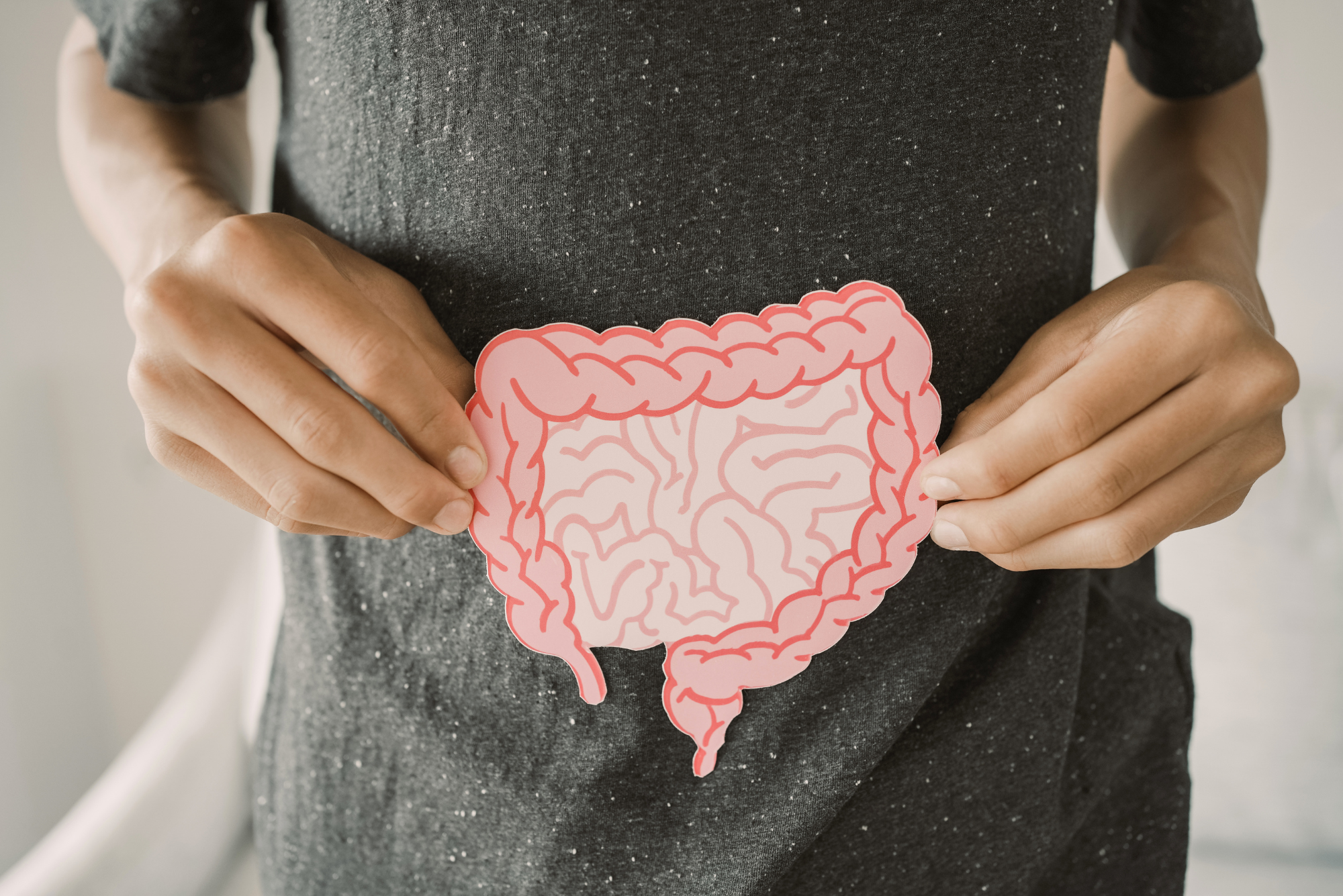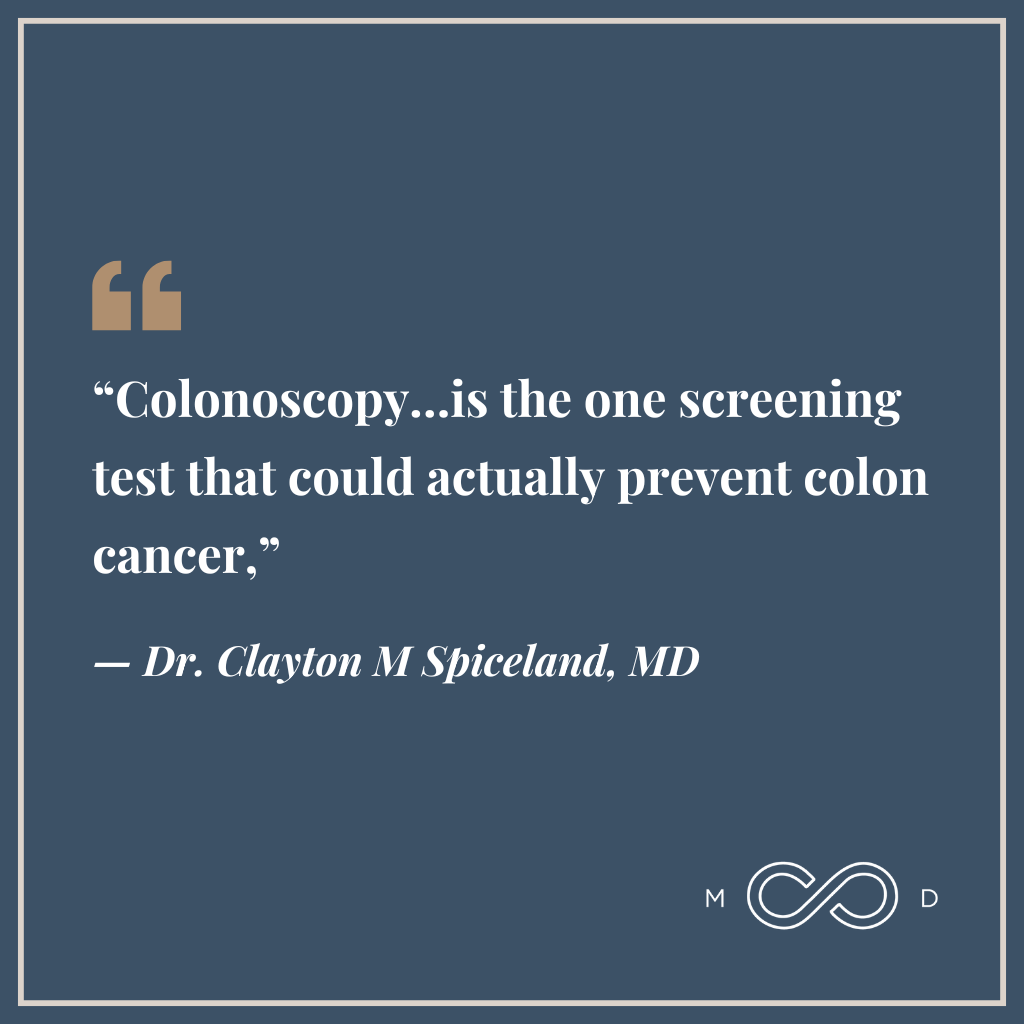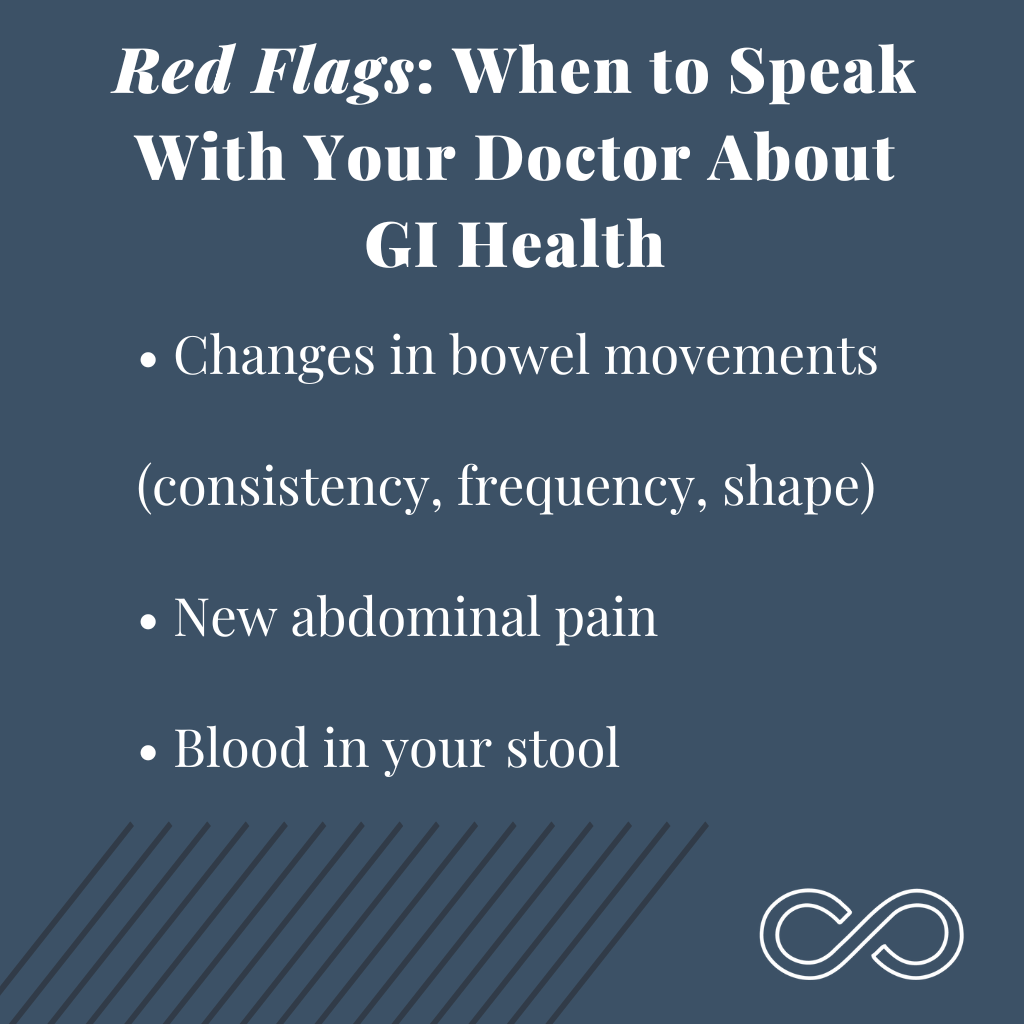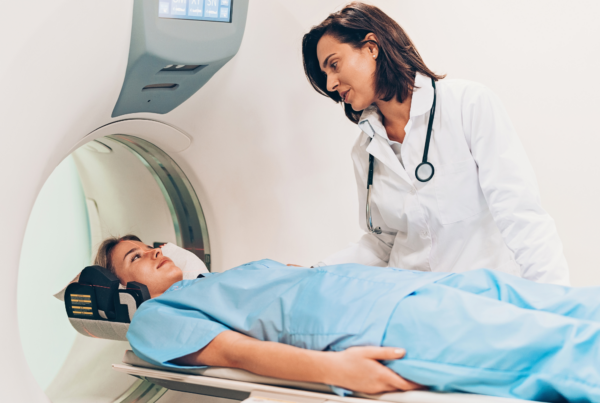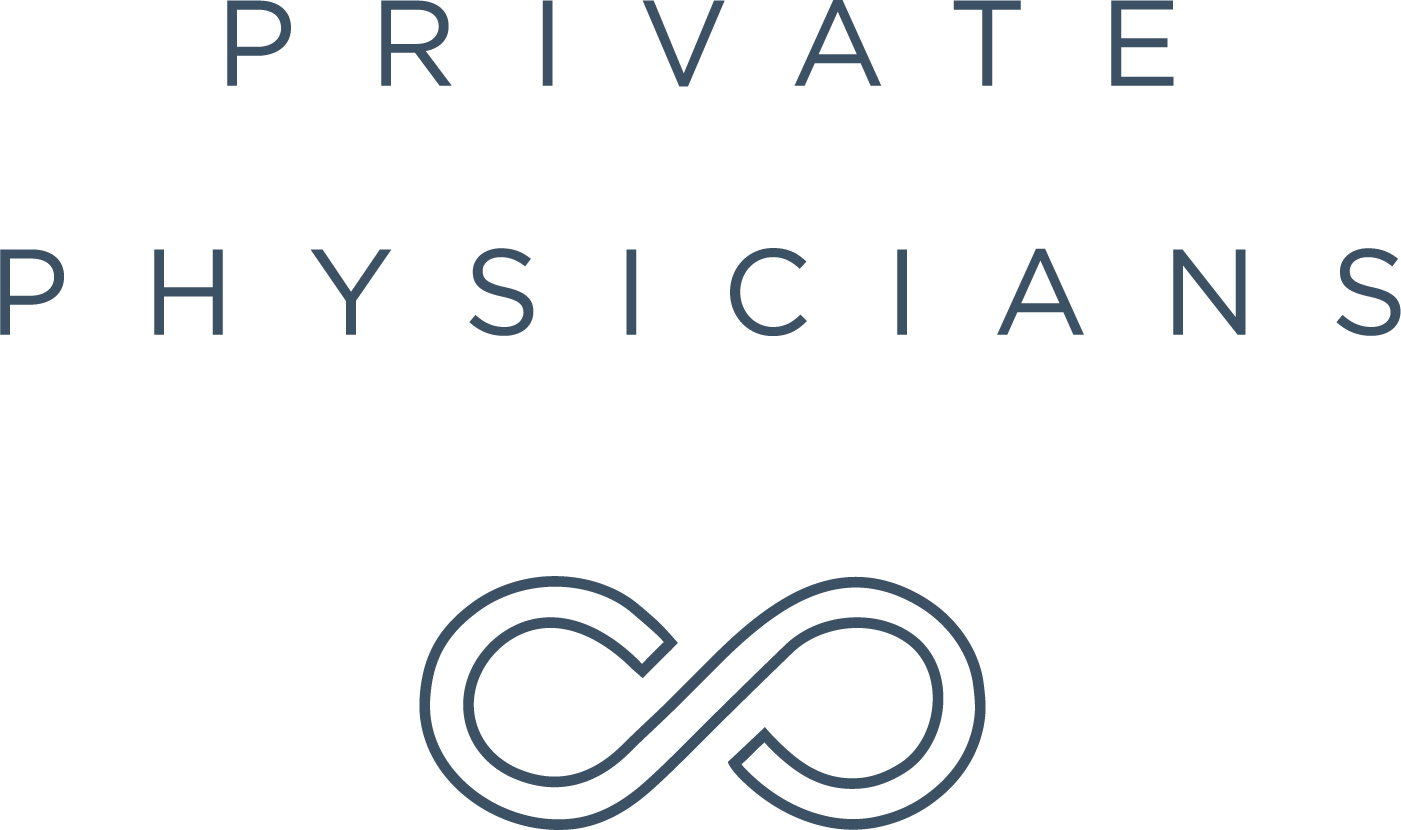Download file | Play in new window | |
In the quest to maintain optimal health and well-being, one area often that’s often overlooked is digestive health.
On a recent podcast episode, I sat down with gastroenterologist Dr. Spiceland to investigate this territory and delve into the intricacies of digestive health and its impact on our overall wellness journey. Dr. Spiceland’s passion for his field stems from the preventive aspect of gastroenterology, particularly the opportunity to detect and address potential issues before they escalate into more serious conditions.
Let’s explore the significance of recognizing early warning signs, understanding screening options, and adopting lifestyle modifications to cultivate a healthier gut — and a healthier you.
The Growing Prevalence of Gastrointestinal Cancers
A recent concerning trend is the rise of gastrointestinal cancers, particularly colorectal cancer, among younger individuals. This shift has prompted experts to revise guidelines for screenings like colonoscopies, lowering the recommended age from 50 to 45.
While the exact causes are multifaceted and difficult to precisely pinpoint, Dr. Spiceland emphasized the likely significant role of our modern diet, which is laden with processed foods.
“A lot of the highly processed foods that…many of us like to eat, are, unfortunately, probably the things that are increasing our cancer risk the most,” Dr. Spiceland explains. “Our colon is where our waste is sitting, and that’s where your body gets most of its contact with that processed food that you eat.”
This insight underscores the importance of adopting a holistic approach to health, recognizing dietary choices as powerful tools in mitigating cancer risk.
Taking Control: Proactive Measures for Prevention
When it comes to cancer prevention, knowledge is power. Dr. Spiceland advocates for a multifaceted approach that addresses both modifiable and non-modifiable risk factors. While genetics play a role, adopting healthy lifestyle habits significantly impacts our overall risk.
Dr. Spiceland emphasizes the benefits of a whole-food, plant-based diet rich in fresh fruits, vegetables, and whole grains for reducing colorectal cancer risk. He acknowledges that eliminating all meat isn’t necessary, but prioritizing whole foods is a practical step toward a healthier gut.
Along with dietary modifications, Dr. Spiceland underscores the importance of regular cancer screenings, even for those diligently following a healthy lifestyle. Early detection remains crucial in combating cancer effectively.
Understanding Your Options: Navigating Screening Techniques
Dr. Spiceland emphasizes the gold standard screening option for colon cancer — the colonoscopy. While perhaps no one’s favorite activity, colonoscopies offer the most effective protection against colon cancer available. Beyond simply looking for cancer, colonoscopies can actually help prevent it.
“Colonoscopy…is the one screening test that could actually prevent colon cancer,” Dr. Spiceland says. The procedure not only provides a comprehensive view of the colon, but also enables the physician to remove precancerous polyps before they develop into cancer.
While colonoscopy is the most effective screening method, Dr. Spiceland recognizes it isn’t always feasible for everyone. For those individuals, he recommends Cologuard as the next best alternative.
Cologuard is a stool-based test, conveniently sent to patients’ homes, and offers a less invasive approach to screening. However, Dr. Spiceland emphasizes that a positive Cologuard result requires a follow-up colonoscopy for further investigation.
Beyond the 10-Year Mark: Concerns About Colonoscopy Intervals
After a clear colonoscopy, the standard time until your next screening is 10 years. However, some patients express anxiety about waiting a full decade, especially given the unpredictable nature of cancer.
Dr. Spiceland addresses this concern by highlighting the importance of high-quality colonoscopies performed by experienced gastroenterologists using advanced technology like artificial intelligence (AI) for polyp detection. He emphasizes that with a higher polyp detection rate, the risk of developing cancer between screenings significantly decreases.
By choosing a skilled gastroenterologist and diligently following pre-procedure instructions, patients can have confidence in the results of their colonoscopy and the recommended follow-up interval.
Recognizing Red Flags: When to Seek Expert Care
While screening is crucial, Dr. Spiceland stresses the importance of recognizing potential warning signs that warrant immediate attention. These red flags, even in people with a history of clear colonoscopies, should never be ignored.
Dr. Spiceland advises individuals to be aware of any changes in their bowel movements, including consistency, frequency, and shape. Additionally, new abdominal pain or blood in the stool should always prompt a conversation with your physician.
Beyond Cancer: Addressing Common Digestive Discomfort
Beyond cancer, other prevalent digestive issues can significantly impact quality of life. Dr. Spiceland explains that many of his patients seek relief from chronic symptoms like heartburn, bloating, irregular bowel habits, and abdominal pain.
These symptoms, while often not life-threatening, can be debilitating, affecting a patient’s ability to work, socialize, and enjoy life. As such, these quality-of-life concerns deserve the same level of care and attention as more serious conditions.
Dr. Spiceland highlights the need for a comprehensive approach that considers lifestyle factors, dietary habits, and potential underlying medical conditions. He emphasizes that often, simple adjustments to diet and lifestyle can bring significant relief to patients struggling with chronic symptoms.
Navigating the World of Supplements: Probiotics and Beyond
In the ever-evolving world of supplements, probiotics are a popular choice for those seeking to improve gut health. Dr. Spiceland offers a balanced perspective, acknowledging the potential benefits of probiotics in specific situations while cautioning against viewing them as a cure-all.
“I definitely think there’s a role for probiotics,” he says, emphasizing that the key lies in understanding how our microbiome — the complex ecosystem of microorganisms residing in our gut — is influenced by various factors, particularly diet. He explains that while probiotics can be beneficial after antibiotic use or infections, our daily food choices have a far greater impact on the composition of our microbiome than any supplement.
Dr. Spiceland prompts us to consider the sheer volume of food we consume compared to a tiny probiotic capsule. He encourages listeners to focus on cultivating a healthy microbiome through a balanced diet rich in whole foods rather than solely relying on supplements.
Taming the Fire: Effective Strategies for Managing Heartburn
Dr. Spiceland explains that persistent heartburn, also known as gastroesophageal reflux disease (GERD), occurs when stomach acid flows back into the esophagus, causing irritation and discomfort.
While occasional heartburn is usually benign, frequent episodes warrant attention as untreated GERD can lead to more serious complications, including Barrett’s esophagus, a precancerous condition, and esophageal cancer. Dr. Spiceland emphasizes that age is a crucial factor in determining the level of concern, with individuals over 45 experiencing frequent heartburn requiring a more cautious approach.
Dr. Spiceland shares practical lifestyle changes that can significantly reduce heartburn symptoms, including weight loss, eating smaller meals earlier in the evening, and avoiding late-night snacks. He also stresses the importance of remaining upright after meals to allow gravity to aid digestion and prevent acid reflux.
Understanding PPIs: Balancing Risks and Benefits in Heartburn Treatment
For those struggling with frequent heartburn despite lifestyle modifications, medication might be necessary. Proton pump inhibitors (PPIs), a class of drugs that effectively reduce stomach acid production, are often the first line of treatment. While PPIs are generally safe and well-tolerated, concerns have been raised about potential long-term risks associated with their use.
Dr. Spiceland acknowledges these concerns, emphasizing that the decision to prescribe PPIs involves carefully weighing the benefits against the potential risks. He notes that while some studies have suggested a correlation between long-term PPI use and conditions like osteoporosis, dementia, and chronic kidney disease, a definitive cause-and-effect relationship has not been established.
When deciding on the appropriate treatment for patients with GERD, Dr. Spiceland emphasizes the importance of individualized care. He carefully considers factors such as age, gender, severity of symptoms, and the presence of any underlying conditions before recommending long-term PPI use. He stresses that the goal is always to find the right balance between effectively controlling symptoms and minimizing potential risks.
The Future of Gastroenterology: Advancements on the Horizon
With recent technological developments, the future of gastroenterology looks bright. For example, Dr. Spiceland points to the growing role of artificial intelligence in enhancing polyp detection during colonoscopies, emphasizing its potential to further reduce the incidence of colorectal cancer.
He also highlights the significant advancements in the management of inflammatory bowel diseases (IBD) such as Crohn’s disease and ulcerative colitis. New medications offer greater efficacy and fewer side effects, while innovative diagnostic tools like fecal calprotectin testing and intestinal ultrasound provide less invasive ways to monitor disease activity and tailor treatment plans.
Dr. Spiceland’s insights offer a glimpse into a future where technology and innovation continue to improve the lives of individuals living with digestive health conditions. His commitment to personalized care, combined with his passion for staying at the forefront of his field, embodies the Brentwood MD philosophy of empowering patients to take control of their health and live their best lives.

Dr. Wright joined Brentwood MD in 2022 as the model allows him to spend more time connecting with patients and build a foundation of exceptional care. He is a Nashville native and completed his family medicine residency at the University of Tennessee Health Science Center, where he also served as Chief Resident. He believes that your health deserves a prominent position on your priority list, and would be honored to serve you and your family.


